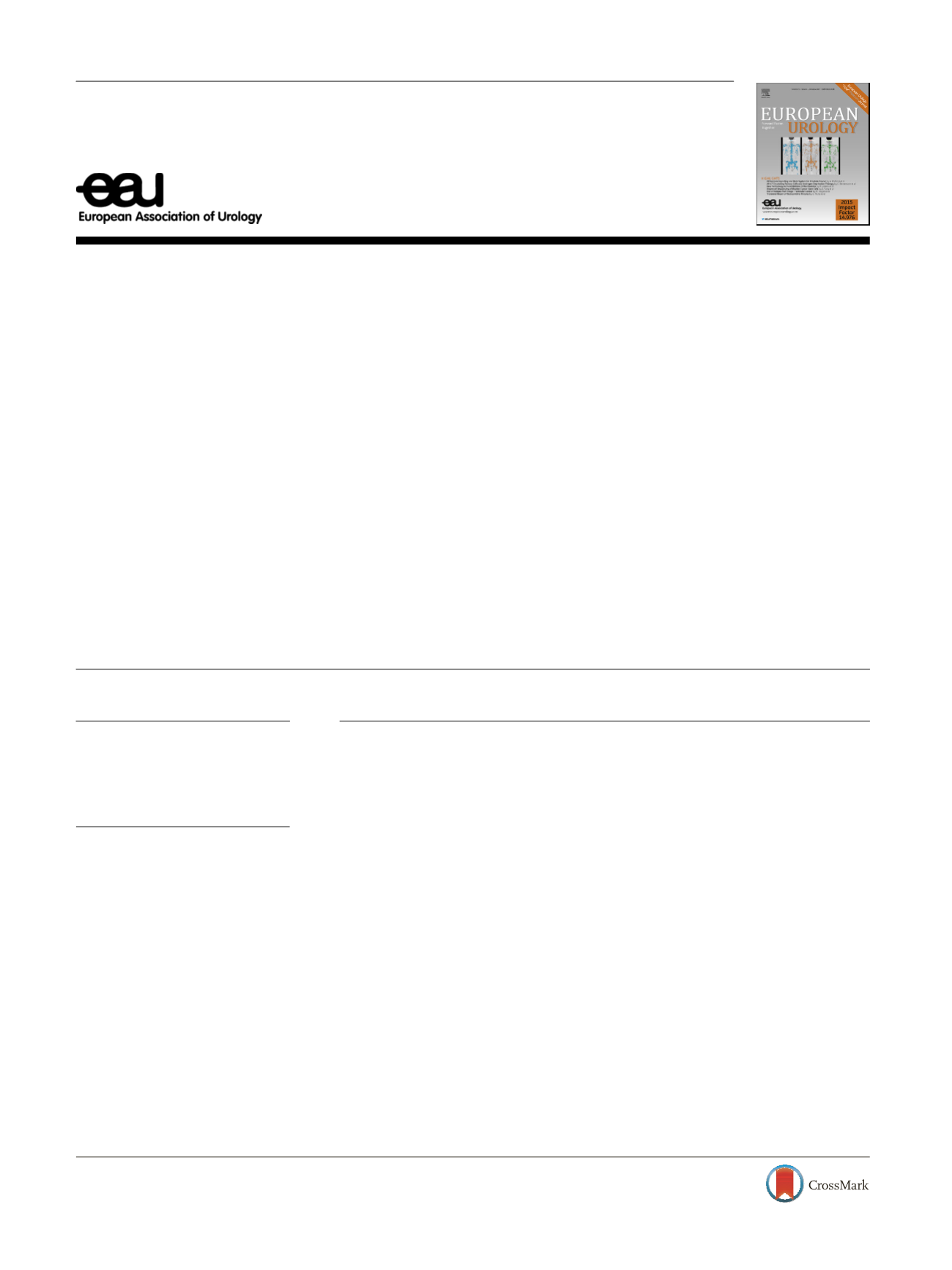

Platinum Priority – Review – Kidney Cancer
Editorial by Archie Fernando on pp. 984–985 of this issue
Recommendations for the Management of Rare Kidney Cancers
Rachel H. Giles
a , b ,Toni K. Choueiri
c ,Daniel Y. Heng
d ,Laurence Albiges
e ,James J. Hsieh
f ,W. Marston Linehan
g ,Sumanta Pal
h ,Deborah Maskens
a ,Bill Paseman
i ,Eric Jonasch
j ,Gabriel Malouf
k ,Ana M. Molina
l ,Lisa Pickering
m ,Brian Shuch
n ,Sandy Srinivas
o ,Ramaprasad Srinivasan
g ,Nizar M. Tannir
j ,Axel Bex
p , *a
International Kidney Cancer Coalition, Duivendrecht, The Netherlands;
b
Department Of Nephrology and Hypertension, University Medical Center Utrecht,
Regenerative Medicine Center Utrecht, Uppsalalaan, Utrecht, The Netherlands;
c
Lank Center for Genitourinary Oncology, Department of Medical Oncology,
Dana Farber Cancer Institute, Boston, MA, USA;
d
Department of Oncology, Tom Baker Cancer Center, University of Calgary, Calgary, Alberta, Canada;
e
Department of Medical Oncology, Gustave Roussy, Universite´ Paris-Saclay, Villejuif, France;
f
Molecular Oncology, Department of Medicine, Siteman Cancer
Center, Washington University, St. Louis, MO, USA;
g
Urologic Oncology Branch, Center for Cancer Research, National Cancer Institute, Bethesda, MD, USA;
h
Department of Medical Oncology & Experimental Therapeutics, City of Hope Comprehensive Cancer Center, Duarte, CA, USA;
i
RareKidneyCancer.org;
j
Genitourinary Medical Oncology, The University of Texas MD Anderson Cancer Center, Houston, TX, USA;
k
Department of Medical Oncology, Pitie-
Salpetriere Hospital, University Pierre and Marie Curie, Paris, France;
l
Division of Hematology and Medical Oncology, Department of Medicine, Weill Cornell
Medicine, New York, NY, USA;
m
Department of Medical Oncology, St George’s Hospital, London, UK;
n
Department of Urology, Yale School of Medicine, New
Haven, CT, USA;
o
Stanford University Medical Center, Stanford, CA, USA;
p
Division of Surgical Oncology, Department of Urology, The Netherlands Cancer
Institute, Amsterdam, The Netherlands
E U R O P E A N U R O L O G Y 7 2 ( 2 0 1 7 ) 9 7 4 – 9 8 3available at
www.scienced irect.comjournal homepage:
www.europeanurology.comArticle info
Article history:
Accepted June 30, 2017
Associate Editor:
James Catto
Keywords:
Non–clear-cell renal cell
carcinoma
Rare kidney cancer
Papillary renal cell carcinoma
Renal cell carcinoma
Chromophobe
Abstract
Context:
The European Association of Urology Renal Cell Carcinoma Guideline Panel
recently conducted a systematic review of treatment options for patients with advanced
non–clear-cell renal cell carcinomas (RCCs), which showed a substantial lack of evidence
for management recommendations.
Objective:
To improve the outcomes of patients with rare kidney cancers (RKCs), we
performed a subsequent unstructured review to determine current treatment strategies
and druggable pathways, involving key stakeholders with a global perspective to
generate recommendations.
Evidence acquisition:
Based on the systematic review, literature was queried in
Pubmed, Medline, and abstracts from proceedings of European Society for Medical
Oncology and American Society of Clinical Oncology, in addition to consulting key
opinion leaders and stakeholders. A conventional narrative review strategy was adopted
to summarize the data.
Evidence synthesis:
The systematic review showed an absence of evidence for treating
RKCs, with data only supporting sunitinib or MET inhibitors for some specific subtypes.
However, a growing body of evidence implicates druggable pathways in specific RKC
subtypes. To test hypotheses, the small patient numbers in each subtype require
coordinated multicenter efforts. Many RKC patients are currently excluded from studies
or are not analyzed using subtype-specific parameters, despite their unmet medical need.
Conclusions:
We recognize the need for additional multicenter studies and subtype-
specific analyses; however, we present management recommendations based on the
data available. Web-based tools facilitating subtype-specific global registries and shared
translational research resources will help generate sufficient data to formulate evi-
dence-based recommendations for guidelines.
* Corresponding author. Division of Surgical Oncology, Department of Urology, The Netherlands
Cancer Institute, Plesmanlaan 121, 1066 CX Amsterdam, The Netherlands.
E-mail address:
a.bex@nki.nl(A. Bex).
http://dx.doi.org/10.1016/j.eururo.2017.06.0400302-2838/
#
2017 European Association of Urology. Published by Elsevier B.V. All rights reserved.
















